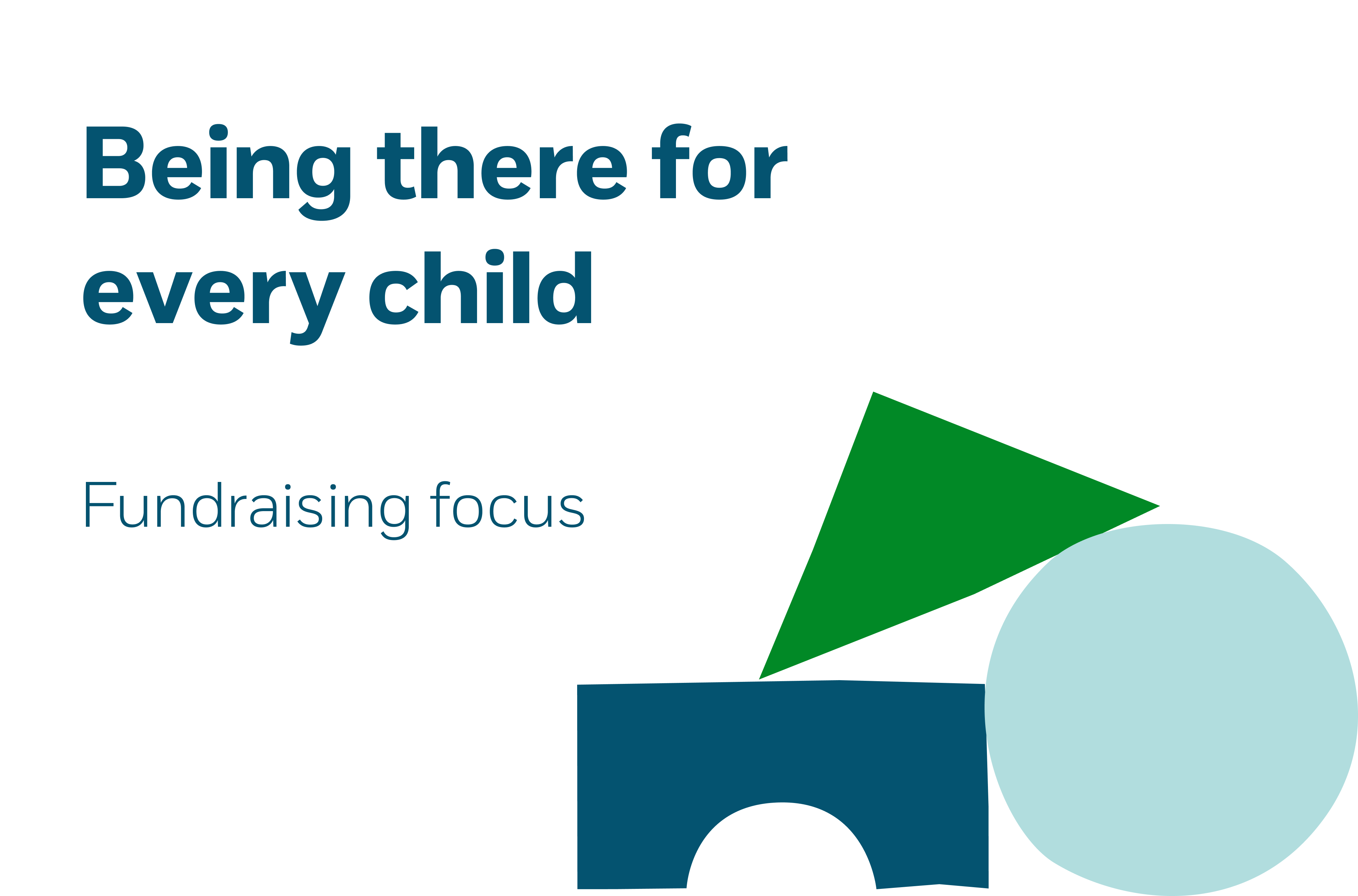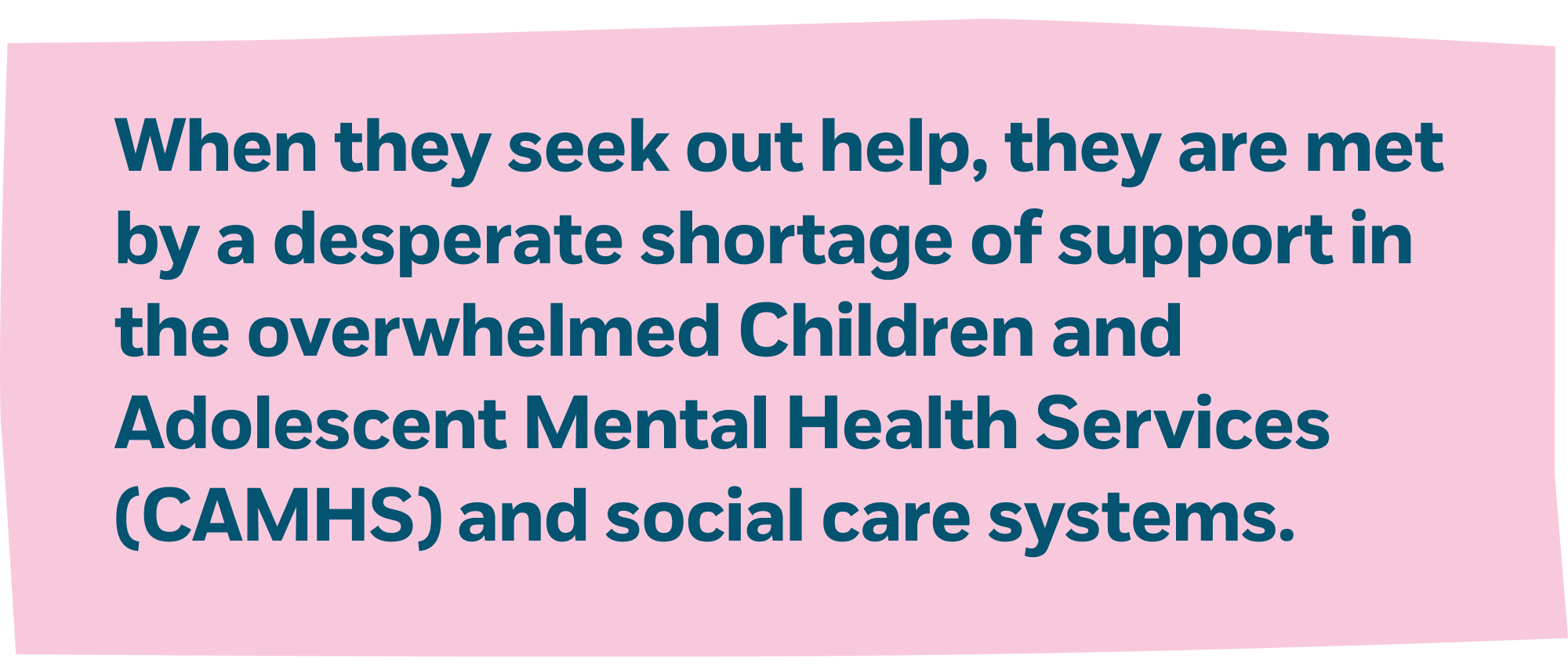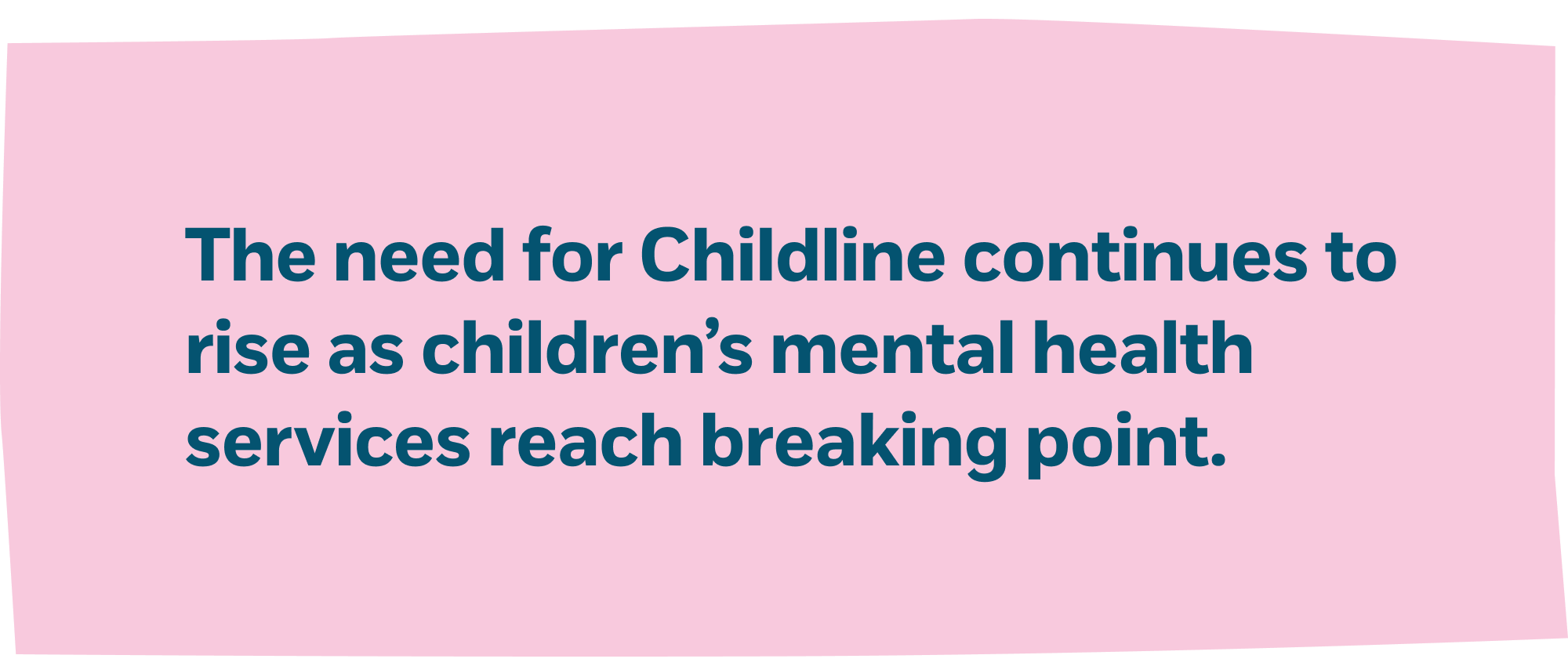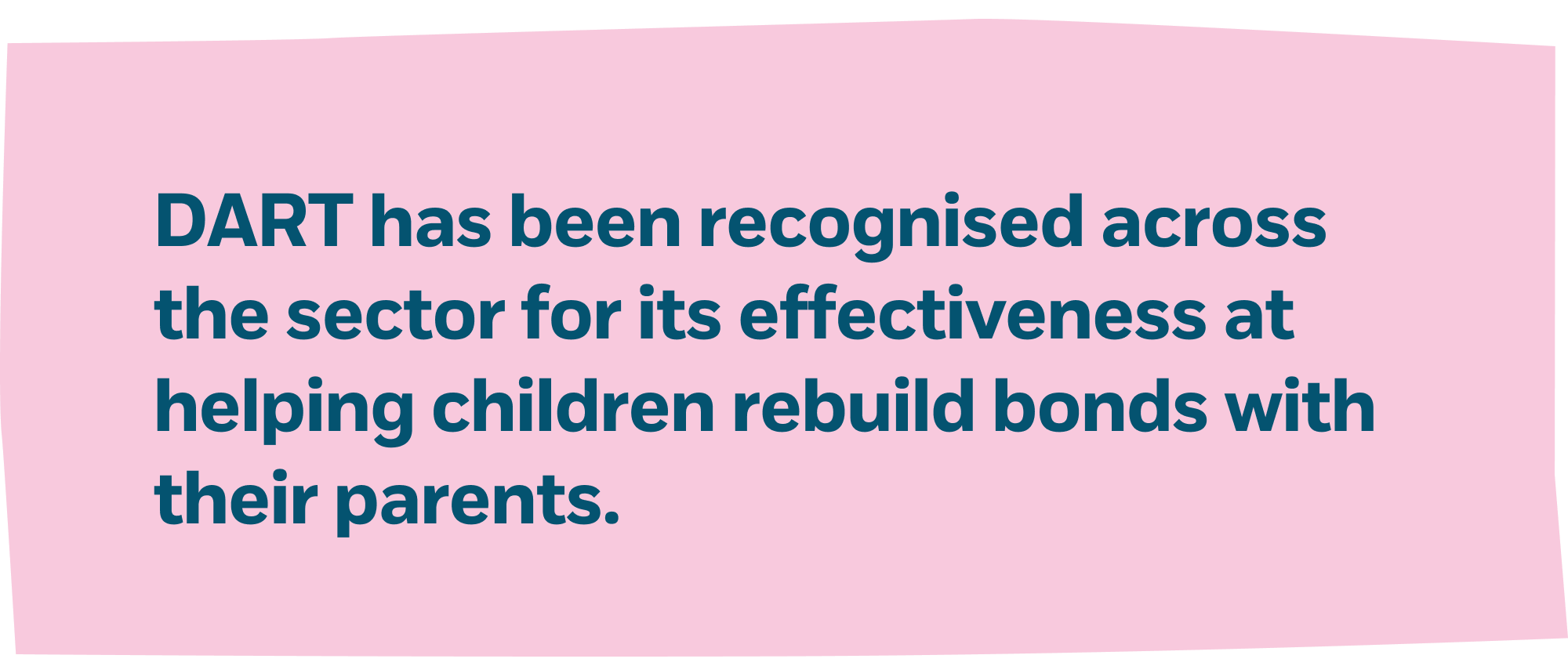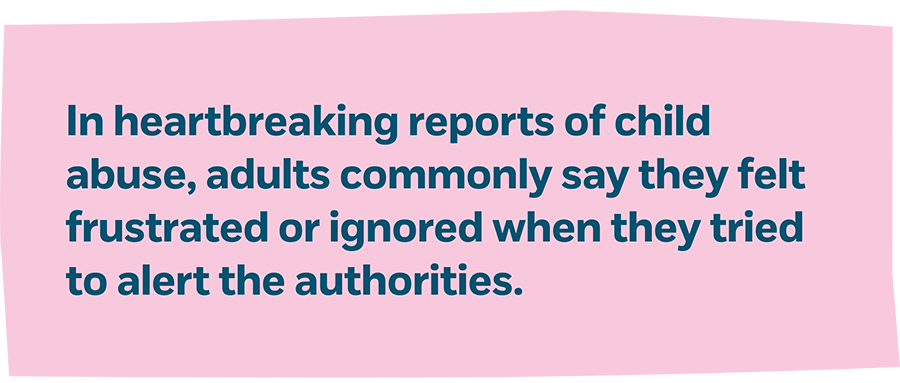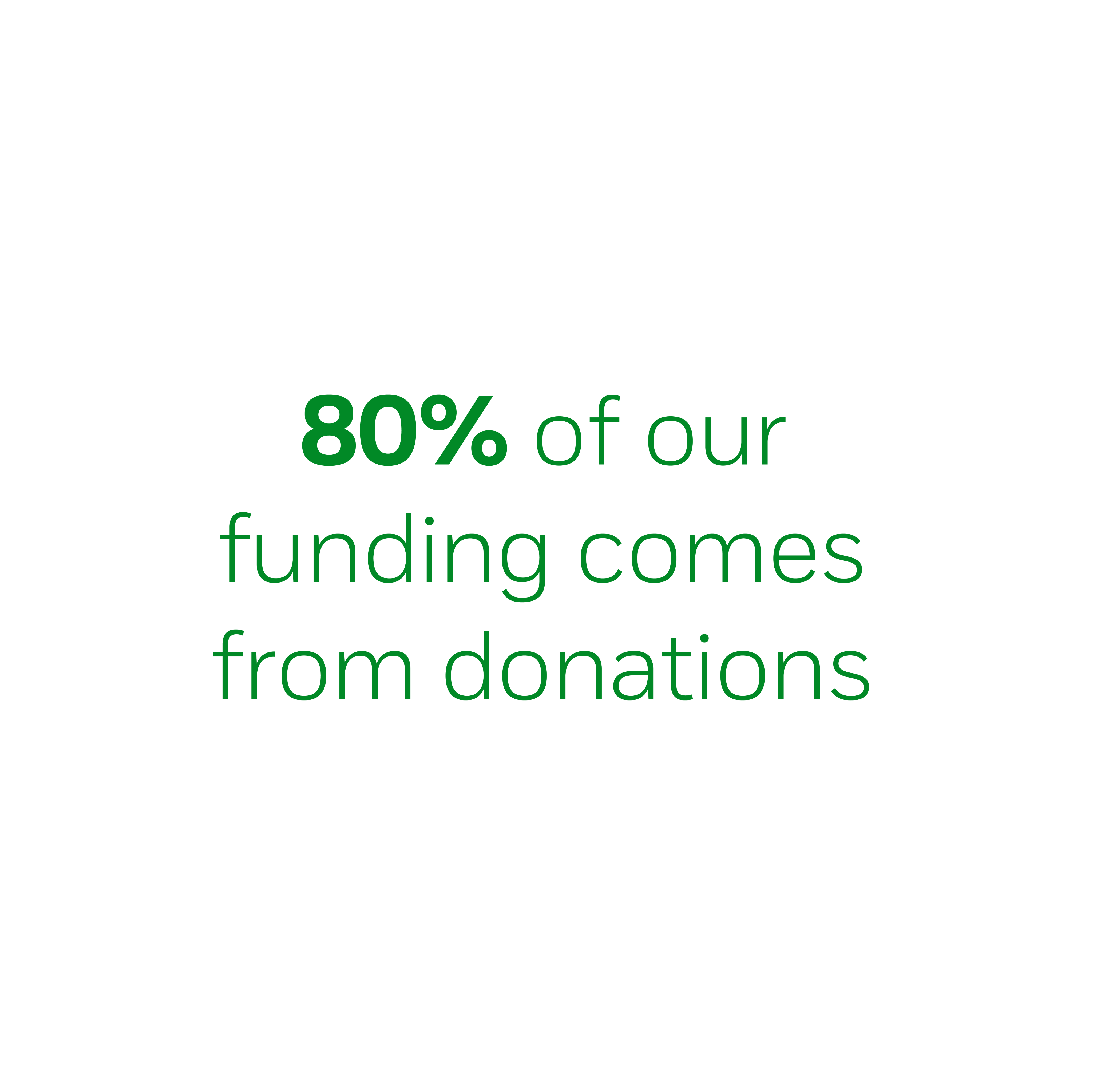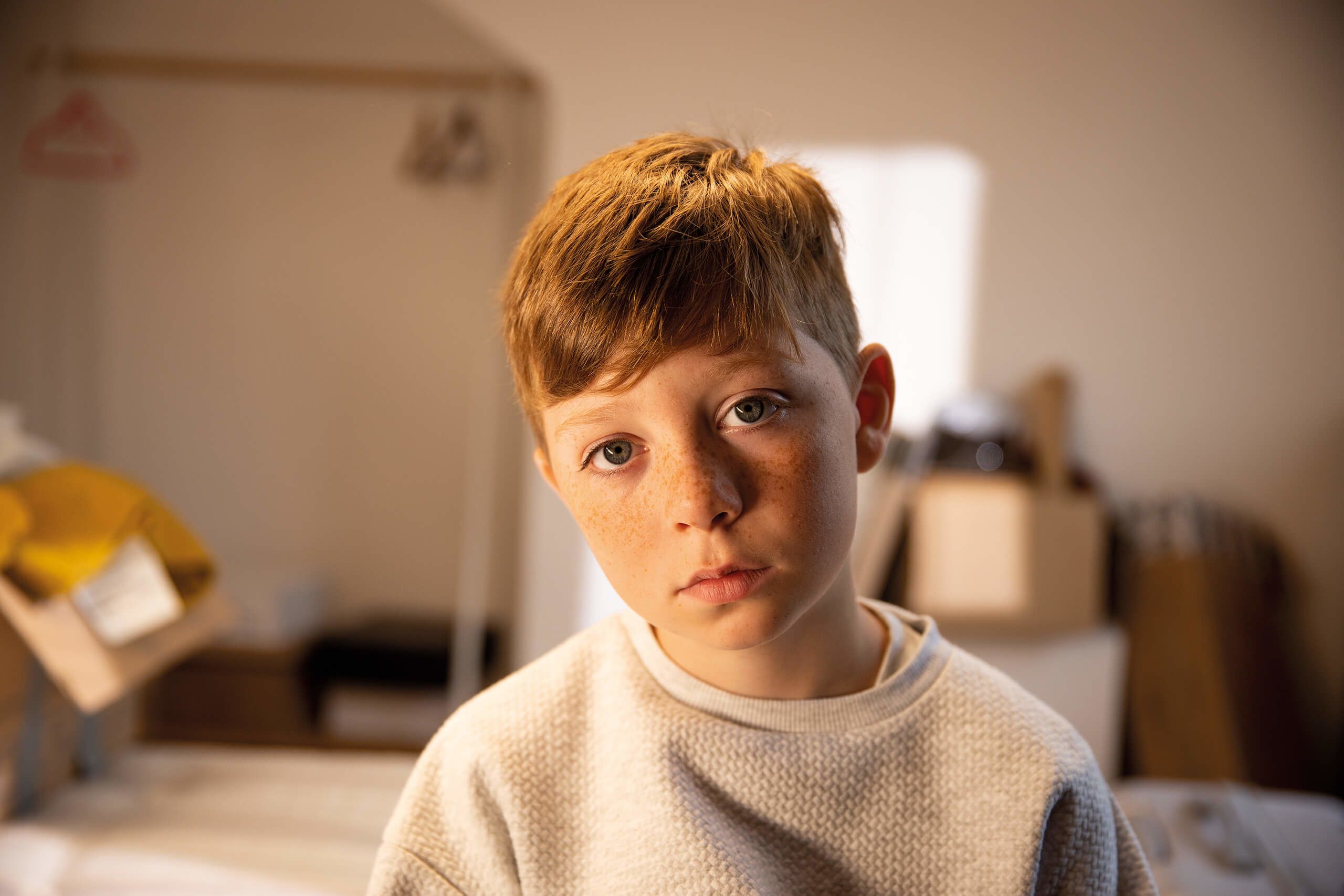
NSPCC frontline services
When children feel desperate or invisible, the NSPCC’s frontline services are there to provide hope.
We will be there for every child in immediate danger, so they feel safe, listened to and understood – and we’ll act to ensure abuse doesn’t shape children’s futures. Our work helps rebuild children’s lives and supports families.

The impacts
of abuse
In the UK:
Around 500,000 children
a year are sexually abused.
1 in 10 children
have been neglected.
1 in 15 children
have been emotionally abused by a parent or carer.
At least 1 child a week
is killed.
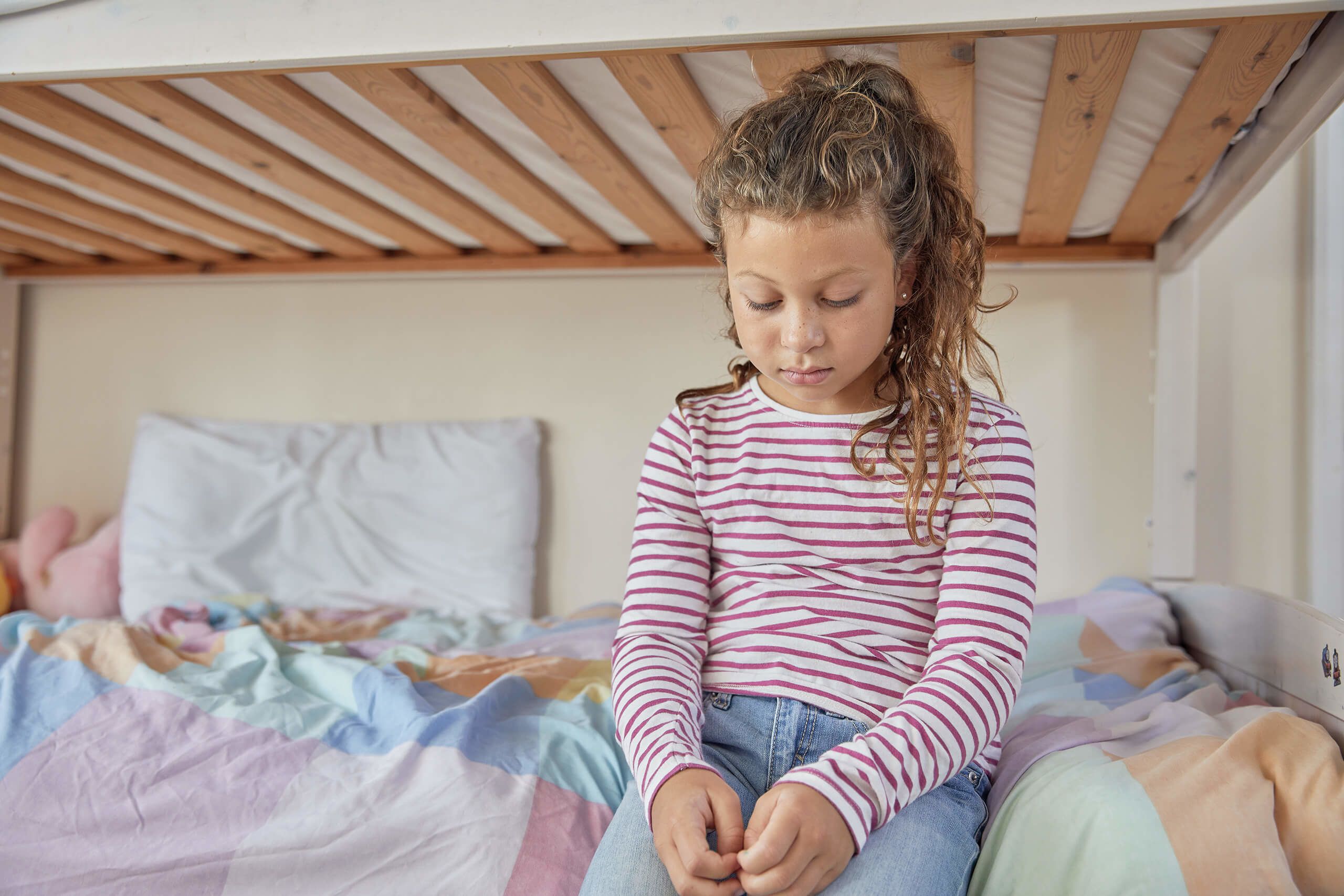
Children today experience high levels of loneliness and mental health problems. They must navigate the fast-changing dangers of an increasingly online world.
When children experience trauma, the effects can be far reaching and long lasting. Without therapeutic care and support, a traumatised child may take longer to learn to walk, talk and eat. They may struggle with trust and relationships or become violent. They are less likely to finish school and more likely to be sent to prison – they need support.
No child should suffer abuse
The NSPCC is the UK’s leading children’s charity, here to protect children from abuse and support them afterwards. Every day, our helpline and frontline staff intervene when children are in danger and offer tailored therapy to help them and their families recover.
Together, we can change children’s lives.


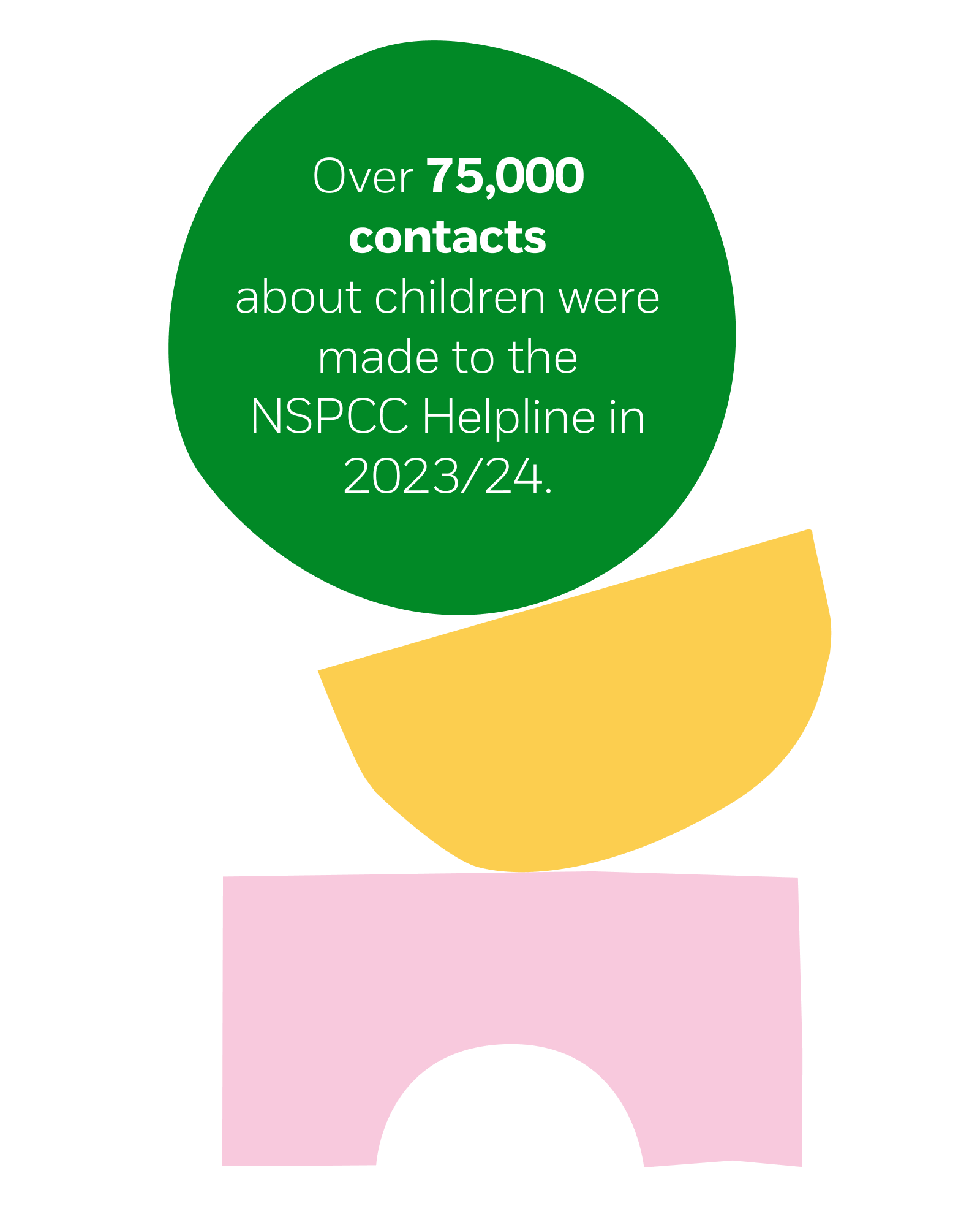
Children today experience high levels of loneliness and mental health problems. They must navigate the fast-changing dangers of an increasingly online world.
When children experience trauma, the effects can be far reaching and long lasting. Without therapeutic care and support, a traumatised child may take longer to learn to walk, talk and eat. They may struggle with trust and relationships or become violent. They are less likely to finish school and more likely to be sent to prison – they need support.
No child should suffer abuse
The NSPCC is the UK’s leading children’s charity, here to protect children from abuse and support them afterwards. Every day, our helpline and frontline staff intervene when children are in danger and offer tailored therapy to help them and their families recover.
Together, we can change children’s lives.

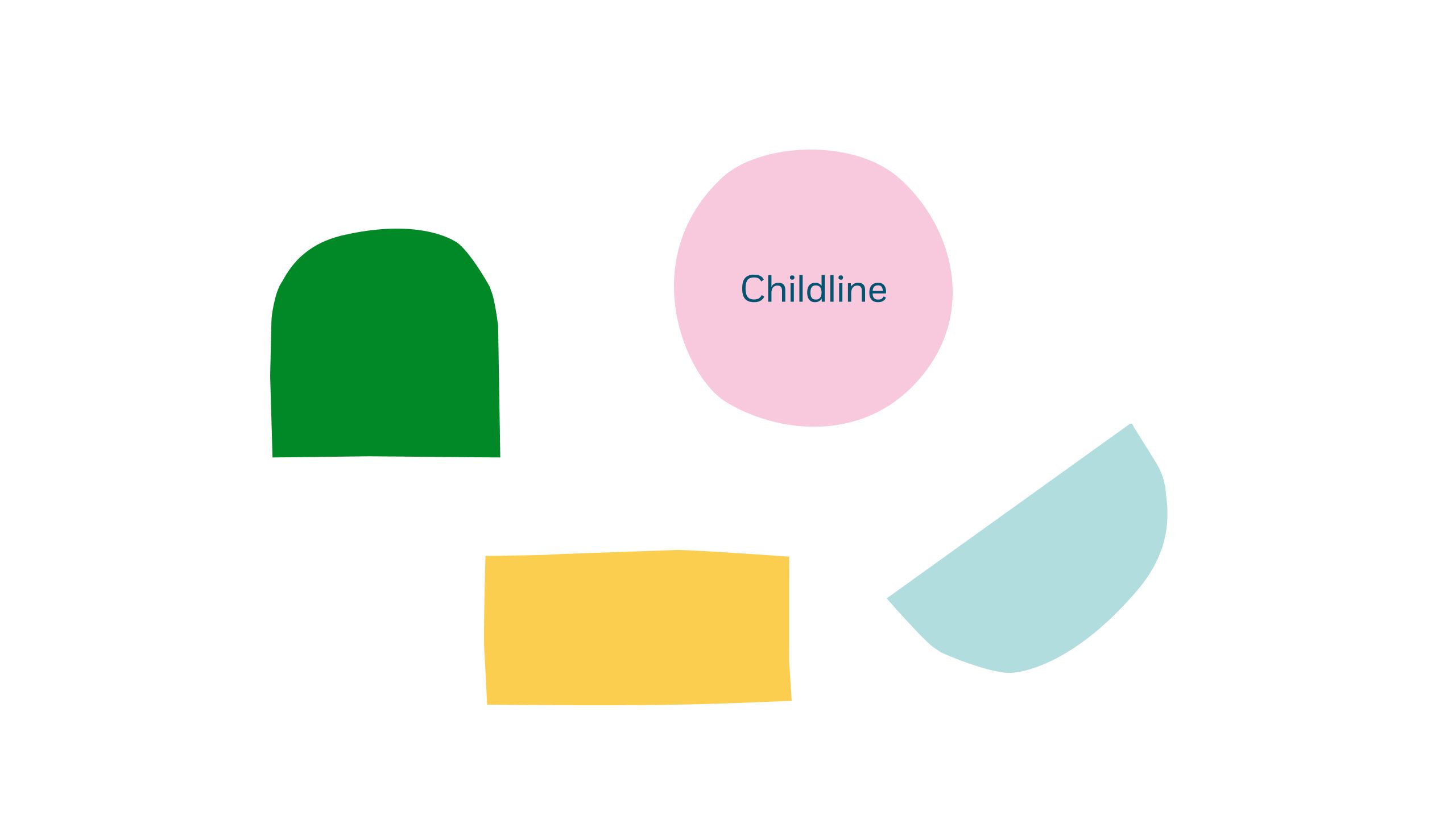
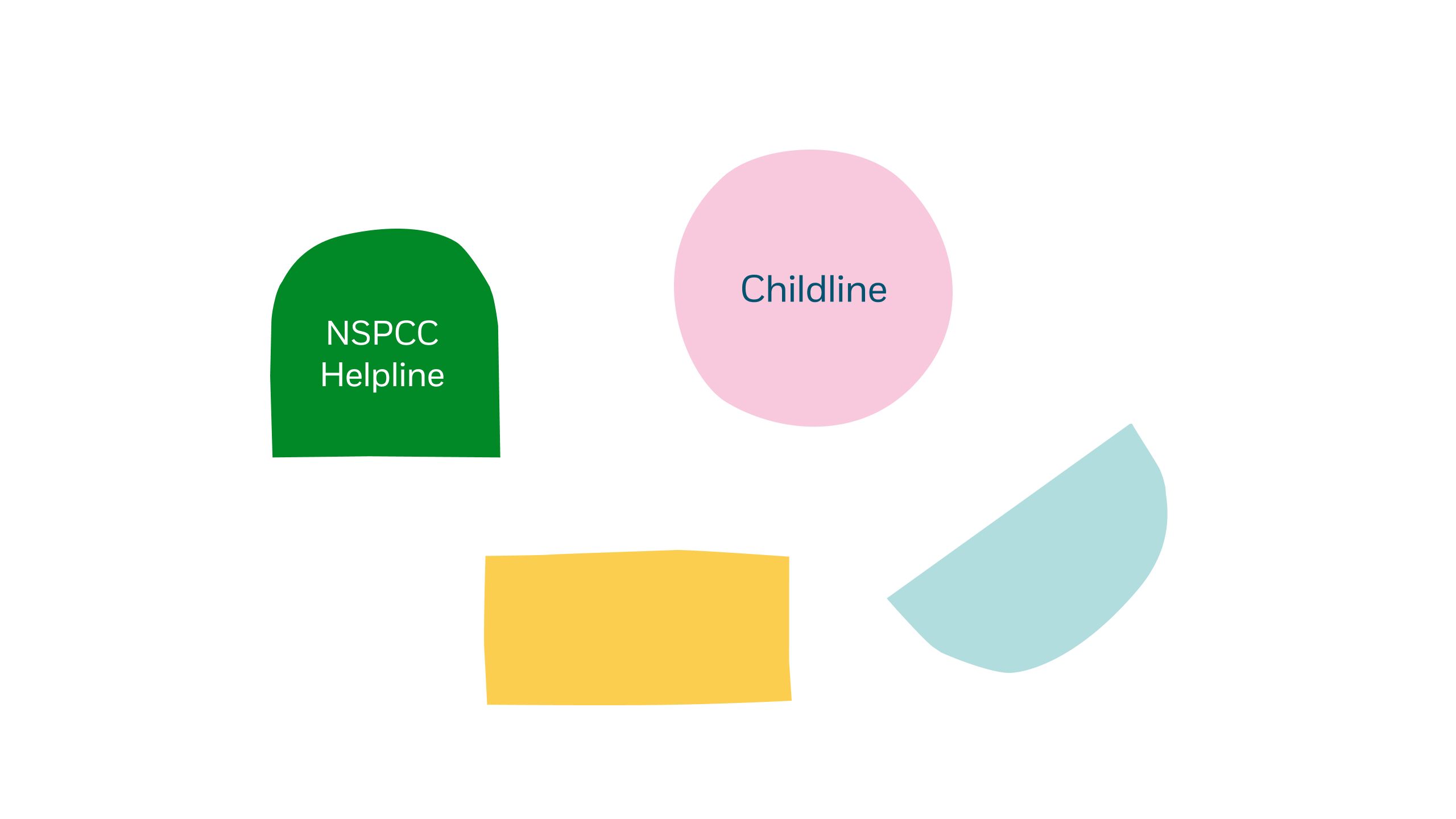
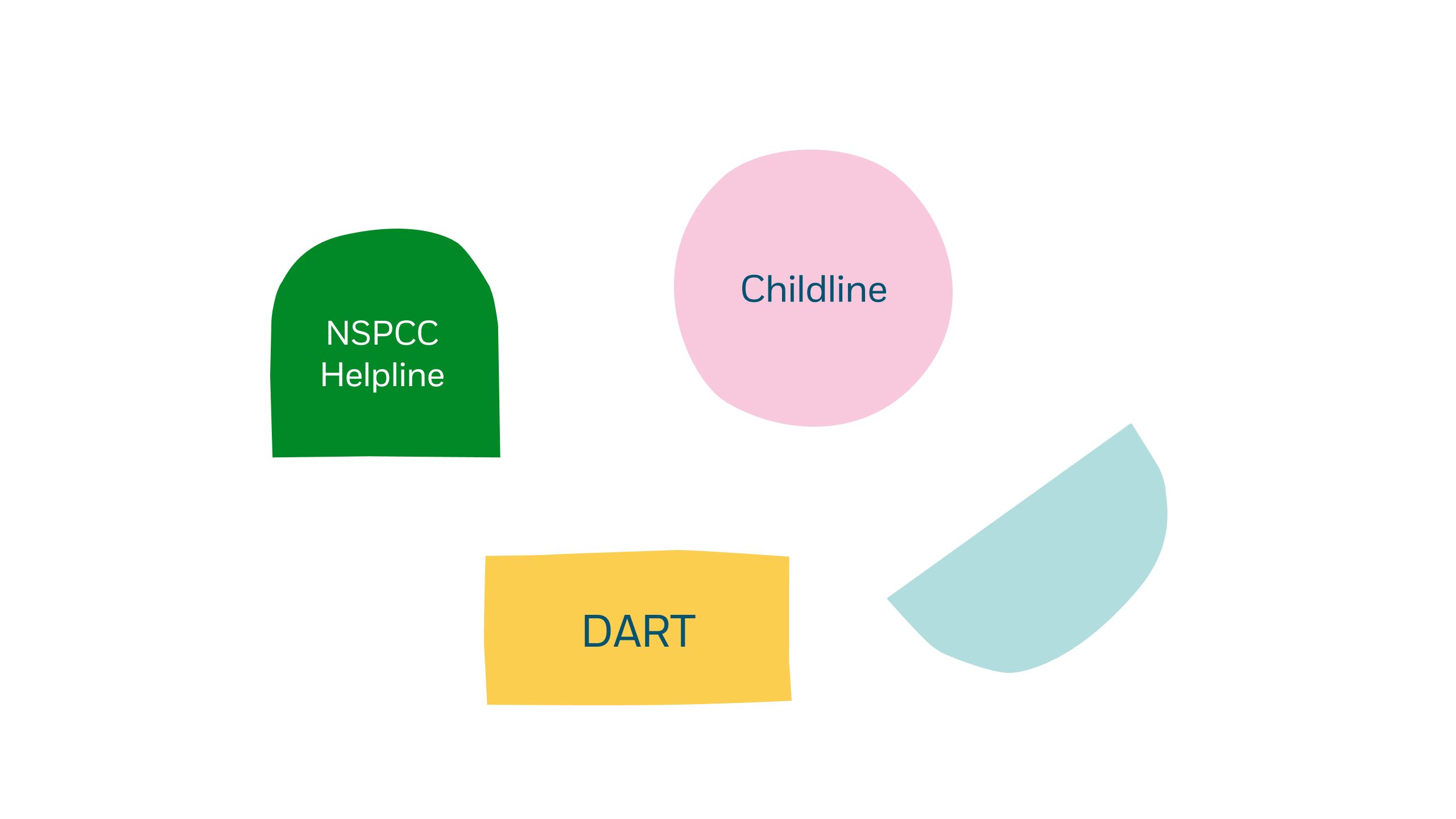
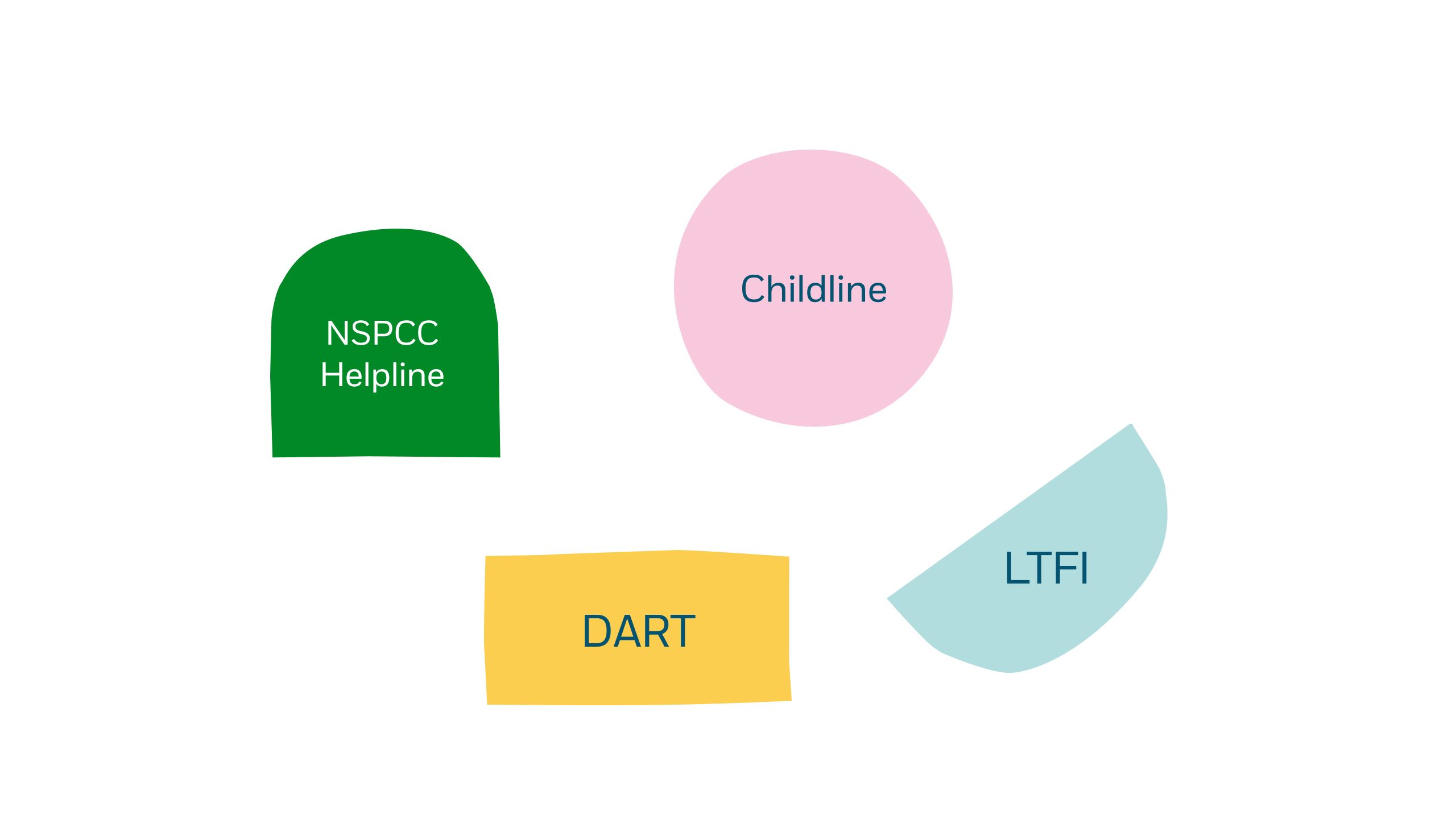
To be there for every child who is suffering abuse, our frontline services include:
Childline, our counselling service for children.
NSPCC Helpline, our help and advice service for adults.
Domestic Abuse, Recovering Together, our domestic abuse recovery service.
Letting the Future In, our sexual abuse recovery service.
Being there when children need us
Childline
When no-one else is listening, Childline gives children and young people somewhere to turn.
Childline has been listening to what children need to speak about since its launch in 1986 – from the pressures they face at school to abuse at home. Our trained volunteer counsellors are there day and night to provide children and young people with a safe, supportive and confidential space to be heard or get help and advice.
Transforming childhoods
This 24/7 service, which is 100% free for children and young people, has delivered over six million counselling sessions to children and the model has inspired child helplines around the world.
In addition to the phone service, we have a web chat and smartphone apps to make it as easy as possible for young people to contact us. More than 73% of counselling sessions now take place online.
Demand is high
Each year, millions of children visit the Childline website to access information and advice, and post messages to each other on our forums – sharing their experiences and drawing comfort and reassurance from others going through the same thing.
On average, a child contacts the service every 45 seconds – with 250,000 calls and messages to us each year. Many are in their darkest hours.

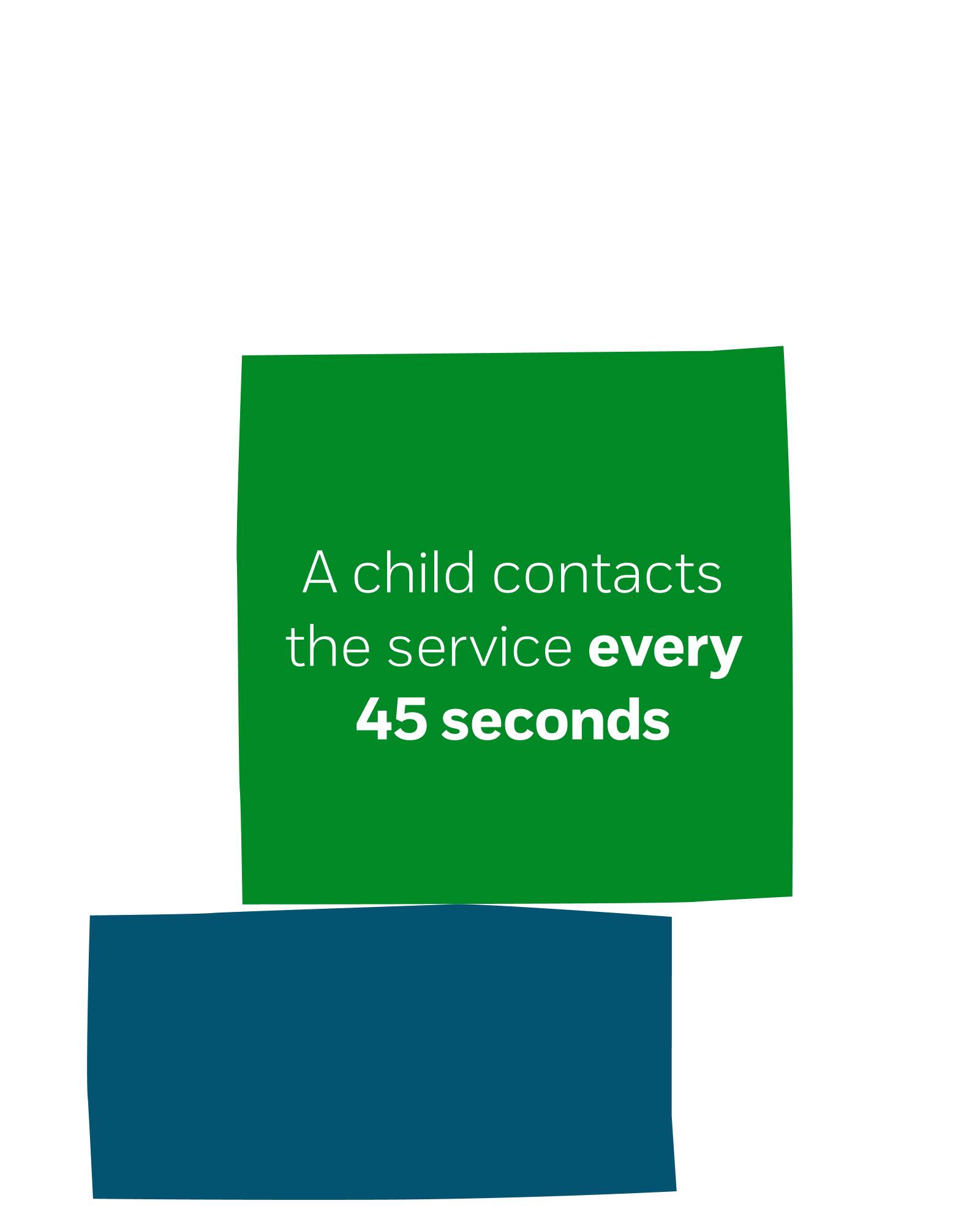
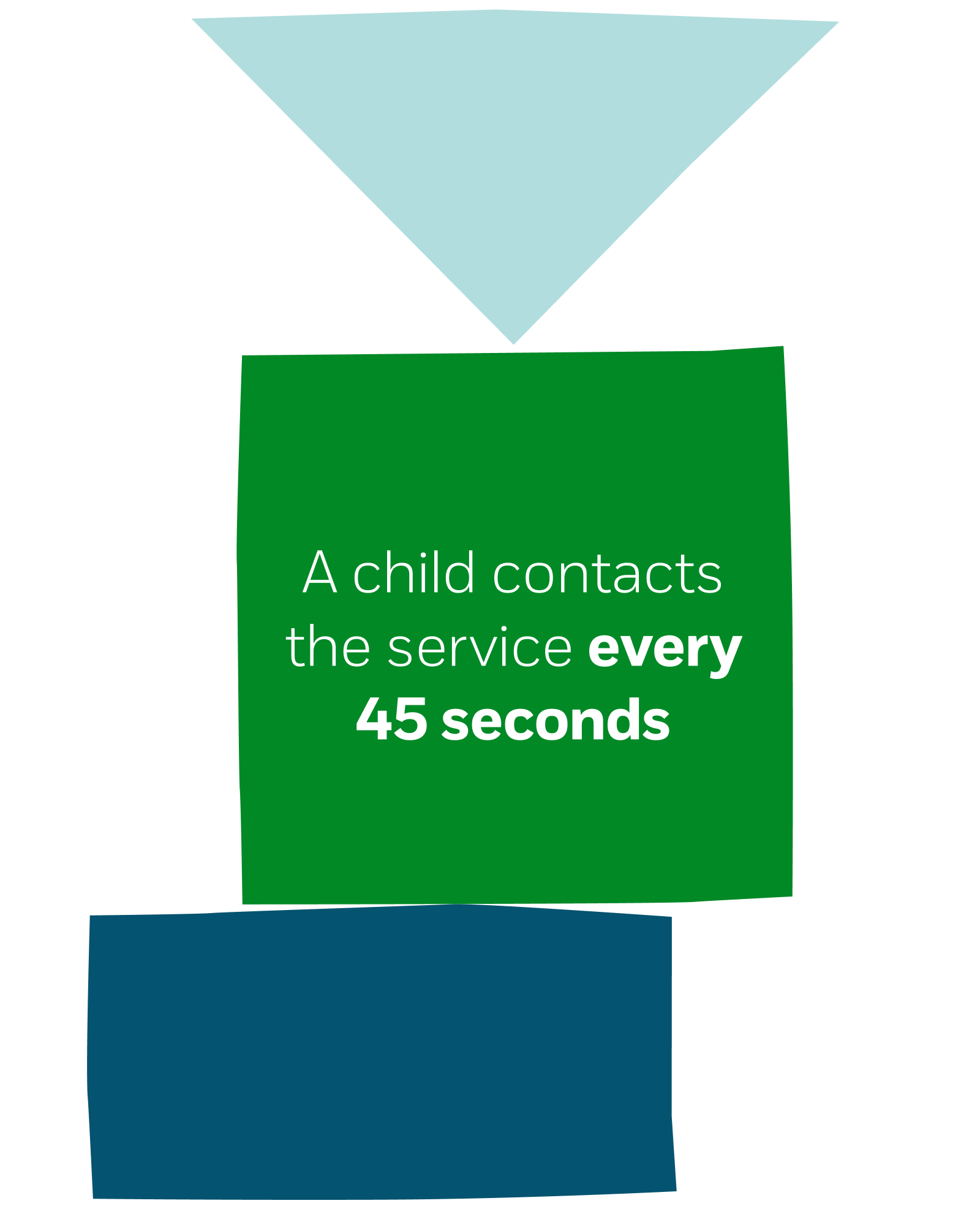
Being there when children need us
Childline
When no-one else is listening, Childline gives children and young people somewhere to turn.
Childline has been listening to what children need to speak about since its launch in 1986 – from the pressures they face at school to abuse at home. Our trained volunteer counsellors are there day and night to provide children and young people with a safe, supportive and confidential space to be heard or get help and advice.
Transforming childhoods
This 24/7 service, which is 100% free for children and young people, has delivered over six million counselling sessions to children and the model has inspired child helplines around the world.
In addition to the phone service, we have a web chat and smartphone apps to make it as easy as possible for young people to contact us. More than 73% of counselling sessions now take place online.
Demand is high
Each year, millions of children visit the Childline website to access information and advice, and post messages to each other on our forums – sharing their experiences and drawing comfort and reassurance from others going through the same thing.
On average, a child contacts the service every 45 seconds – with 250,000 calls and messages to us each year. Many are in their darkest hours.
Being there when children have no voice
NSPCC Helpline
Our free service offers support when adults are concerned about a child, or children can’t speak out themselves. That might be reporting child abuse and neglect, or offering advice and information for parents, carers and professionals.
Protecting children
The NSPCC Helpline provides a supportive platform where adults can discuss their concerns and acts as a vital stepping stone to keep children safe.
As an independent expert service, our child protection specialists handle emergency calls and reports of child abuse. We can offer information and support on issues affecting children, through to making referrals to social services. Counsellors will also contact the police if they believe a child is in immediate danger.
For those looking for guidance, our specialists at the Helpline may share details of local services or other resources on topics such as keeping children safe online or supporting children’s mental and emotional wellbeing.
Open to all
We’ve carefully built the service to best protect children. That means we allow callers to remain anonymous when they don’t wish to share identifying details, although we will ask for children’s details if we need to. We also offer support by email and British Sign Language video calls.
Demand continues to grow for our child protection specialists.
Over 75,000 contacts about children were made to the NSPCC Helpline in 2023/24. Without it, children may miss out on the support they desperately need. Every adult who contacts us may hold a key piece of evidence to support our referrals to the police and social services – evidence that can help end abuse or support families to prevent it altogether.

Being there after domestic abuse
Domestic Abuse, Recovering Together (DART)
An NSPCC service helping children survive and recover from domestic abuse by building a strong bond with their mum.
Research shows that domestic abuse disrupts the relationship between parents and their children, which has a significant impact on children’s development, education and mental health. Even once safe from their abuser, they may become withdrawn, emotional and aggressive.
There is evidence that females are disproportionately affected by domestic abuse. And all victims will be left at greater risk of other forms of abuse.
Supporting mothers and children
DART gives children aged 7 –14 and their mothers the opportunity to talk about abuse, learn to communicate and rebuild their relationship – everything they need to thrive.
The service, which has been recognised by the Home Office, has been shown to improve mothers’ self-esteem and parental confidence, reduce children’s emotional and behavioural difficulties, and help mums and children share more affection, despite their trauma.
Expanding the service
We’re now supporting other organisations to adopt, implement and deliver the approach themselves in order to reach as many children as possible. This partner programme has been shown to have a similar level of success to the NSPCC’s own training.
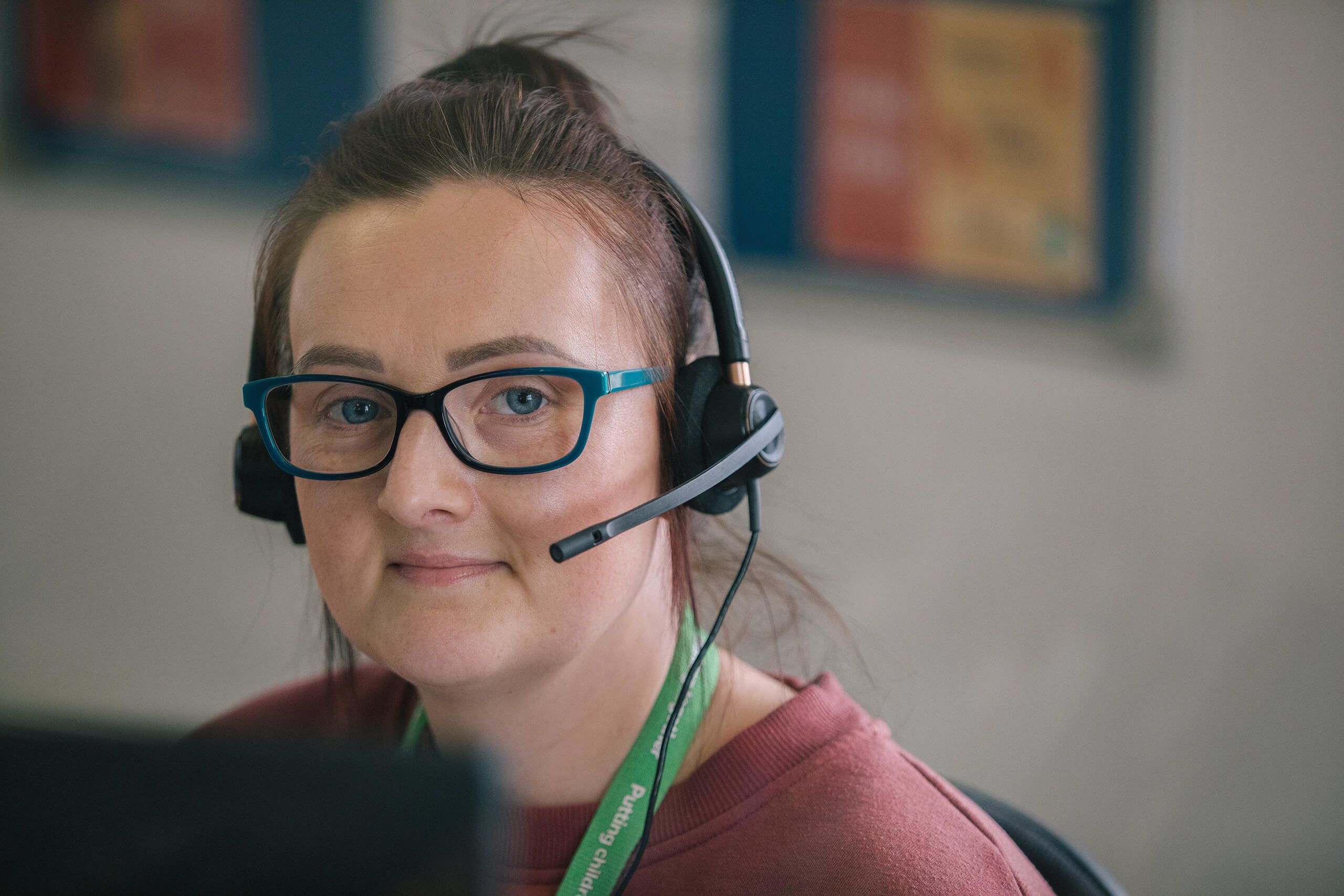

Being there after sexual abuse
Letting the Future In (LTFI)
The NSPCC’s specialist service for children who have experienced sexual abuse.
Heartbreakingly, we identified a severe lack of therapeutic services for children who had been sexually abused. Our research showed that treatments aimed specifically at abuse were most effective. Yet those services that did exist were more likely to be aimed at general mental health, rather than specialist therapeutic treatments. In addition, they were aimed at individuals as opposed to the whole family.
It was clear that a new approach could better support children through their trauma.
Rebuilding lives
LTFI supports children and young people between the ages of 4 and 17 (or 19 if they have a learning disability) to rebuild their lives. The service is available at nine centres across the UK and the Channel Islands.
We provide children with the time and space to recover, and strengthen supportive relationships with family. When memories are repressed or children simply don’t have the words to describe what they have been through, creative therapy can help them to talk about their experiences and process their feelings.
Proven to be effective
The service has been shown to be effective at reducing psychological and behavioural problems in 8–17 year olds after 6 months. For younger children, there is evidence of improvements after 12 months.
LTFI is highly cost-effective at just £2,300 per case. This is less than half the cost of cases seen by a multidisciplinary Child and Mental Health Service.
LTFI has been recommended by the National Institute for Health and Care Excellence and was showcased in the Home Office’s commissioning framework. We also support other organisations to deliver the service to increase its scale and impact.

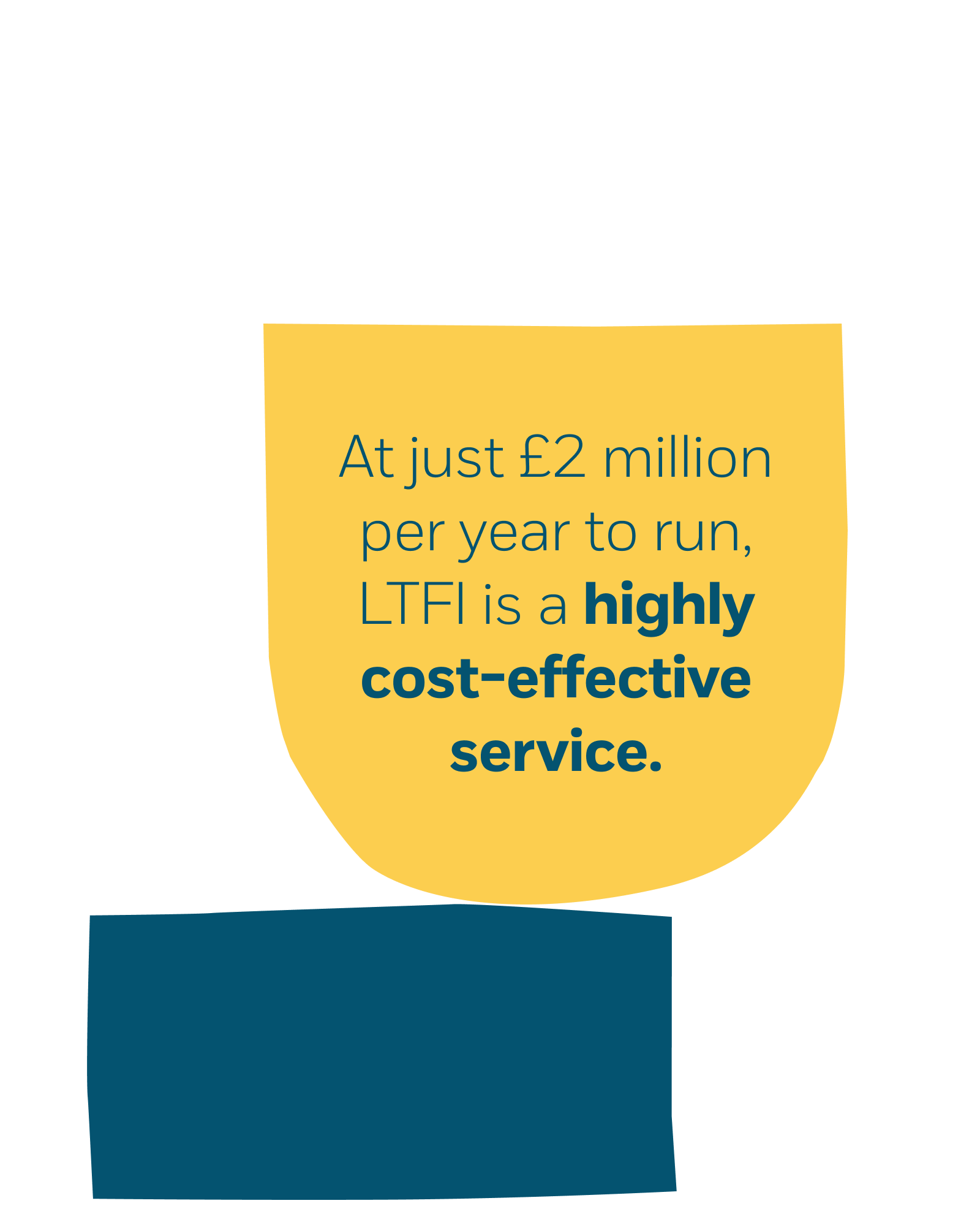
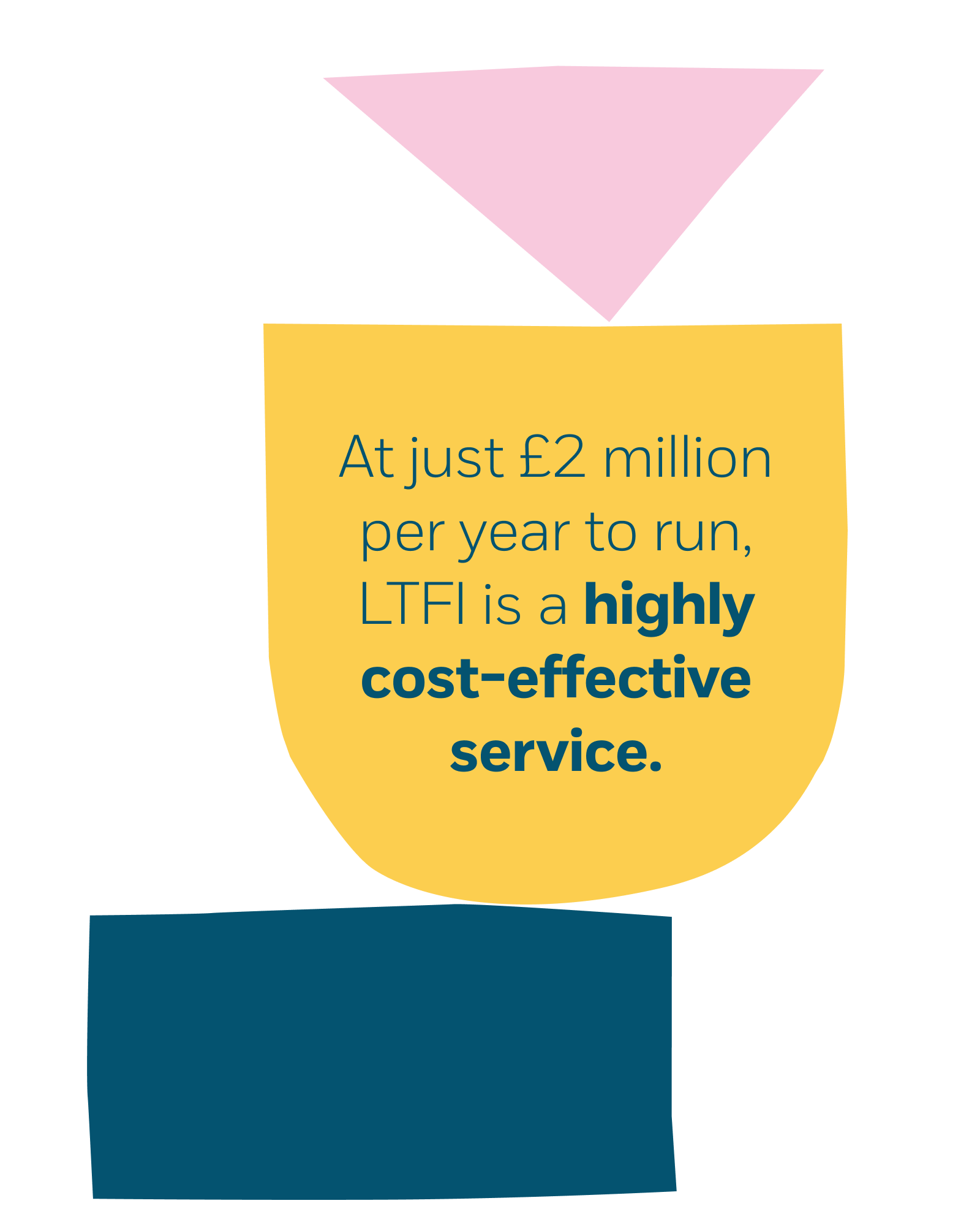
Being there after sexual abuse
Letting the Future In (LTFI)
The NSPCC’s specialist service for children who have experienced sexual abuse.
Heartbreakingly, we identified a severe lack of therapeutic services for children who had been sexually abused. Our research showed that treatments aimed specifically at abuse were most effective. Yet those services that did exist were more likely to be aimed at general mental health, rather than specialist therapeutic treatments. In addition, they were aimed at individuals as opposed to the whole family.
It was clear that a new approach could better support children through their trauma.
Rebuilding lives
LTFI supports children and young people between the ages of 4 and 17 (or 19 if they have a learning disability) to rebuild their lives. The service is available at nine centres across the UK and the Channel Islands.
We provide children with the time and space to recover, and strengthen supportive relationships with family. When memories are repressed or children simply don’t have the words to describe what they have been through, creative therapy can help them to talk about their experiences and process their feelings.
Proven to be effective
The service has been shown to be effective at reducing psychological and behavioural problems in 8–17 year olds after 6 months. For younger children, there is evidence of improvements after 12 months.
LTFI is highly cost-effective at just £2,300 per case. This is less than half the cost of cases seen by a multidisciplinary Child and Mental Health Service.
LTFI has been recommended by the National Institute for Health and Care Excellence and was showcased in the Home Office’s commissioning framework. We also support other organisations to deliver the service to increase its scale and impact.
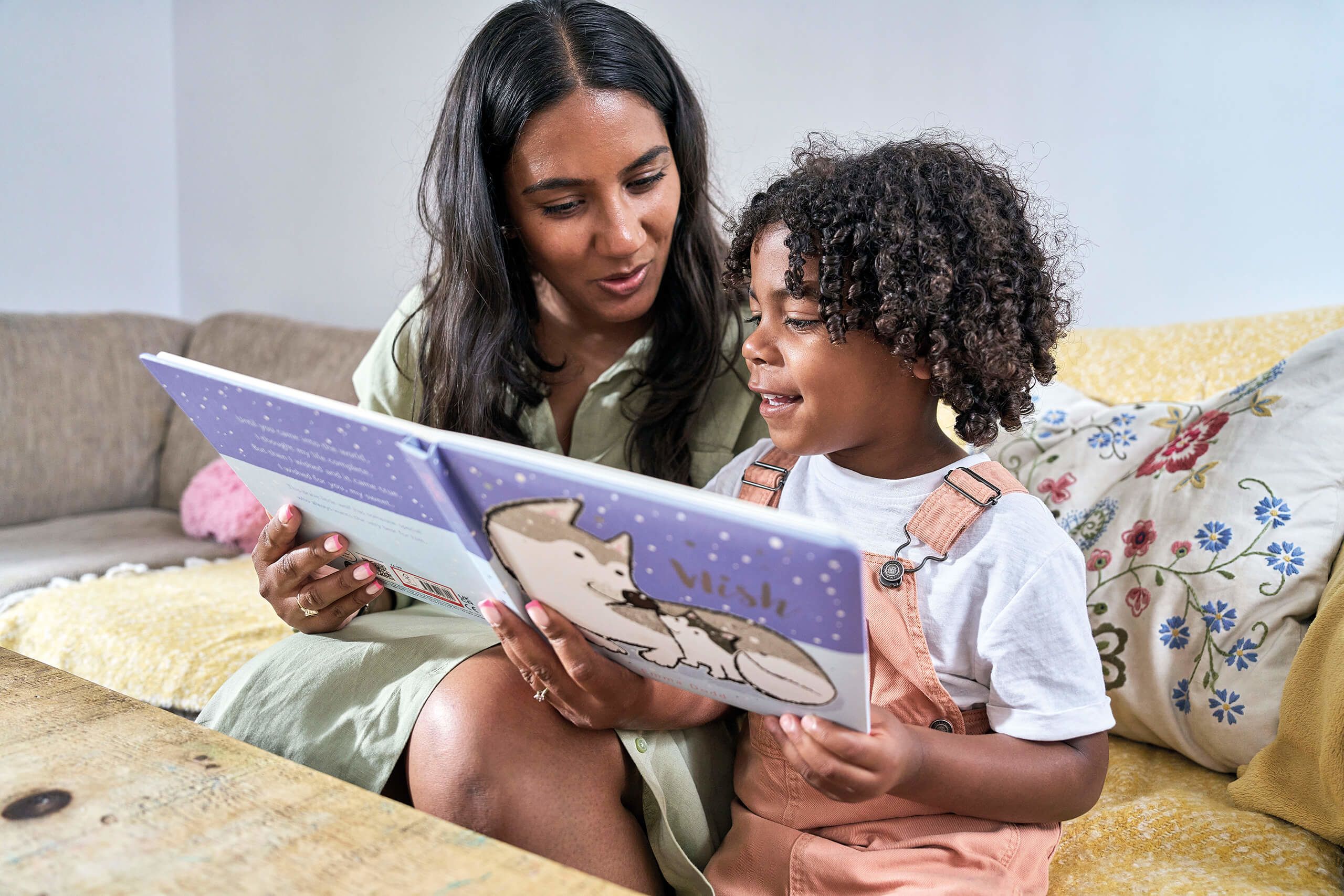
Will you be there for every child?
Your support for the NSPCC’s frontline services will help protect every child in the UK from being abused, wherever and whenever they need help.
You may choose to support one of the services on this page. Or perhaps you have another area of work in mind?
